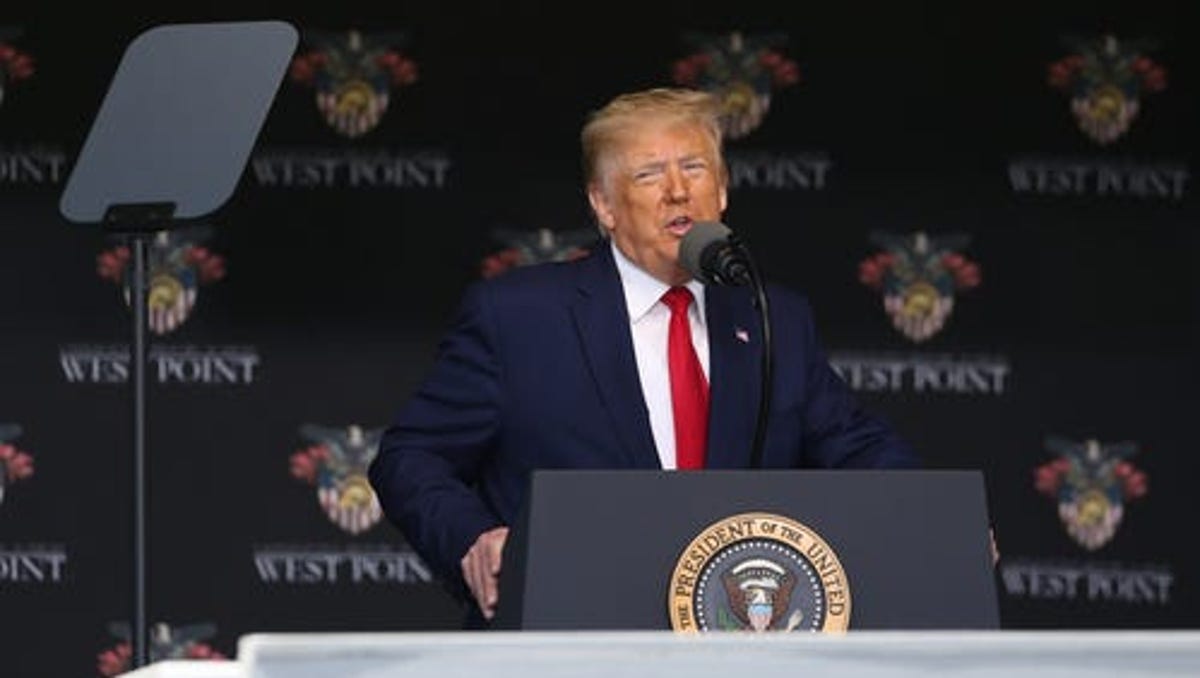Deportations and revoked visas: What is Trump’s immigration endgame?
Legal migrants are left in limbo as millions see their status disappear from the Trump administration.
April 22 (Reuters) – A federal judge in Colorado directed President Donald Trump’s administration on Tuesday to give Venezuelan migrants detained in that state notice 21 days in advance before any deportations under a law historically used only in wartime, and to inform them of their right to challenge their removal.
In a written ruling maintaining a temporary block within Colorado on deportations under the 1798 Alien Enemies Act, U.S. District Judge Charlotte Sweeney said the administration must tell the migrants in a language they understand that they have the right to consult a lawyer.
During a hearing on Monday, Sweeney expressed skepticism that the 24 hours notice that the administration had pledged to provide would satisfy the U.S. Supreme Court’s April 7 order requiring migrants be given the opportunity to challenge their removals in court.
The Justice Department did not immediately respond to a request for comment.
The deportations are part of the Republican president’s hardline approach toward immigration since he returned to office in January. Trump was elected to a second term as president last November after a campaign in which he promised to step up deportations.
Trump in a social media post on Monday said the government “cannot give everyone a trial” before deporting them.
“We would need hundreds of thousands of trials for the hundreds of thousands of Illegals we are sending out of the Country,” Trump wrote. “Such a thing is not possible to do.”
Trump on March 15 invoked the Alien Enemies Act in a bid to swiftly deport alleged members of the Venezuelan gang Tren de Aragua, which his administration has designated as a foreign terrorist organization, outside normal immigration proceedings.
Relatives of many of the hundreds of deported Venezuelans and their lawyers have denied that they are Tren de Aragua members and have said they were never given the chance to contest the administration’s allegations of gang affiliation.
The Supreme Court previously ordered the administration to give any migrants it planned to deport under the Alien Enemies Act notice and the chance to challenge their removals in court. The court did not specify how much notice migrants were to be given.
The American Civil Liberties Union, representing the migrants held in Colorado, had asked Sweeney to require the administration to provide notice 30 days in advance. That timetable was in line with the procedure that the U.S. government used the last time the Alien Enemies Act was invoked, during World War Two, to intern and deport people of Japanese, German and Italian descent.
The law authorizes the president to deport, detain or place restrictions on individuals whose primary allegiance is to a foreign power and who might pose a national security risk in wartime.
On Saturday, the Supreme Court weighed in again, blocking what advocates said was the imminent removal of dozens of Venezuelans held in Texas without due process.
(Reporting by Luc Cohen in New York; Editing by Will Dunham)
